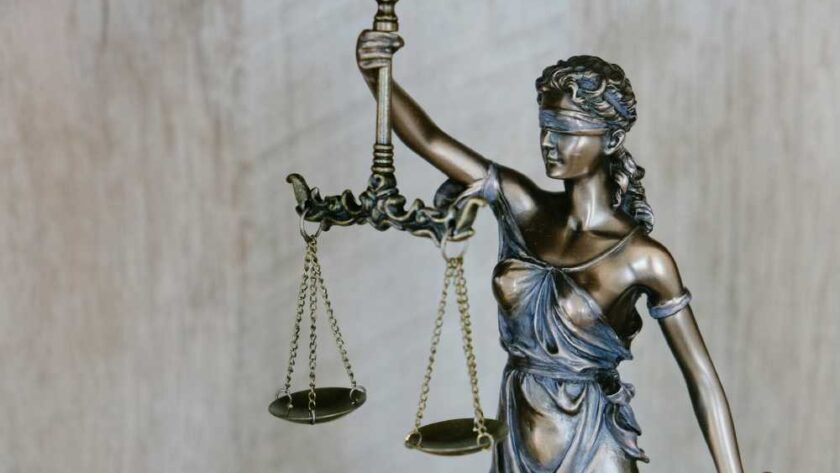Unjust detention is a pressing global issue where individuals are held without legitimate reason or due process. This infringement of basic human rights affects countless lives and hampers societal progress. Advocates like Mohamed Soltan strive to raise awareness and promote changes in policies to protect individuals from such injustices. Addressing unjust detention cannot be overstated, as it undermines the foundation of justice and human dignity.
Understanding the mechanisms behind unjust detentions is essential for fostering informed advocacy and meaningful change. This article delves into various aspects of unjust detention, including global perspectives, legal frameworks, notable case studies, and the significant role of NGOs.
Furthermore, it explores the psychological impacts on detainees. It offers practical ways for individuals to support human rights activism, thus driving home the need for collective action.
Contents
Global Perspective on Unjust Detention
The fight against unjust detention spans across continents. Regardless of their developmental stage, nations grapple with allegations and instances of unlawful imprisonment. Recent reports highlight significant increases in such cases, making international cooperation imperative.
Violations occur in various contexts—from political dissent to ethnic discrimination—affecting diverse populations and creating a universal call to action. Collaborative efforts are required to address legal system inadequacies and universally promote human rights.
Efforts to resolve this issue require a global perspective. Countries must recognize the universal nature of human rights and work in concert to enforce fair and just legal standards. Treaties, international organizations, and cross-border collaborations are essential in monitoring, reporting, and addressing unjust detention cases, setting a precedent for worldwide standards.
Legal Frameworks and Defenses
Legal frameworks worldwide provide varying degrees of protection against unjust detention. Many international agreements, such as the International Covenant on Civil and Political Rights (ICCPR), are designed to safeguard individuals.
These agreements offer frameworks that member countries can adopt to protect citizens from unlawful imprisonment and ensure fair legal proceedings. The ICCPR, for instance, obligates states to respect and ensure the rights to personal liberty and security.
Analyzing these frameworks helps identify strengths and areas needing reform. Countries with robust legal protections and independent judiciaries tend to have lower instances of unjust detention.
Conversely, nations with weak legal systems or where the rule of law is compromised often see higher rates of unlawful imprisonment. Effective legal defenses, accessible legal aid, and transparency in the judicial process are crucial elements in safeguarding against unjust detention.
The Role of NGOs
Non-Governmental Organizations (NGOs) play a critical role in combating unjust detention. They work tirelessly to provide legal assistance, document abuses, and advocate for policy changes. NGOs often serve as intermediaries, ensuring detainees receive fair treatment and their cases are brought to public attention. Their efforts are pivotal in initiating and sustaining reform efforts globally.
Organizations like Amnesty International and Human Rights Watch tirelessly campaign for the release of unjustly detained individuals. Through legal interventions, policy recommendations, and raising public awareness, NGOs create a support network necessary for addressing human rights violations.
These organizations also work closely with international bodies to ensure legal reforms are implemented and respected worldwide.
Psychological Impact on Detainees
The toll of unjust detention is not just physical but also profoundly psychological. Many detainees grapple with severe mental health issues resulting from prolonged incarceration, isolation, and mistreatment. Understanding these impacts is essential for providing holistic support and rehabilitation.
Offering comprehensive mental health services and supporting re-integration into society are critical steps for the recovery of detainees.
The psychological trauma inflicted on detainees can include anxiety, depression, post-traumatic stress disorder (PTSD), and other severe mental health conditions. Addressing these impacts requires immediate medical and psychological support and long-term strategies to help former detainees rebuild their lives. Community support programs, counseling, and continuous follow-up are integral to successful rehabilitation.
Ways to Support Human Rights Activism
- Volunteer with or donate to human rights organizations. Your time and resources can make a substantial difference in the ability of these organizations to support detainees.
- Participate in events or rallies aiming to raise awareness. Public demonstrations often put significant pressure on legislative bodies to enact changes.
- Educate yourself and others about the causes and consequences of unjust detention. Knowledge and awareness are powerful tools in the fight for justice.
- Support legislative efforts aimed at reforming detention laws. Advocating for legal reforms ensures long-term protection against unjust detentions.
Conclusion of the Fight Against Unjust Detention
Combatting unjust detention requires a multifaceted approach, combining legal reforms, international cooperation, and grassroots activism. As global citizens, we must champion human rights and ensure no individual suffers the plight of unlawful imprisonment. Advocacy efforts are crucial in driving this movement forward and achieving meaningful change.
By supporting human rights organizations, getting involved in activism, and fostering a global culture that values justice and human rights, we can collectively work towards a world free of unjust detention. Legal reforms, vigilant international oversight, and persistent advocacy are key to protecting human dignity and ensuring that the principles of justice prevail universally.




